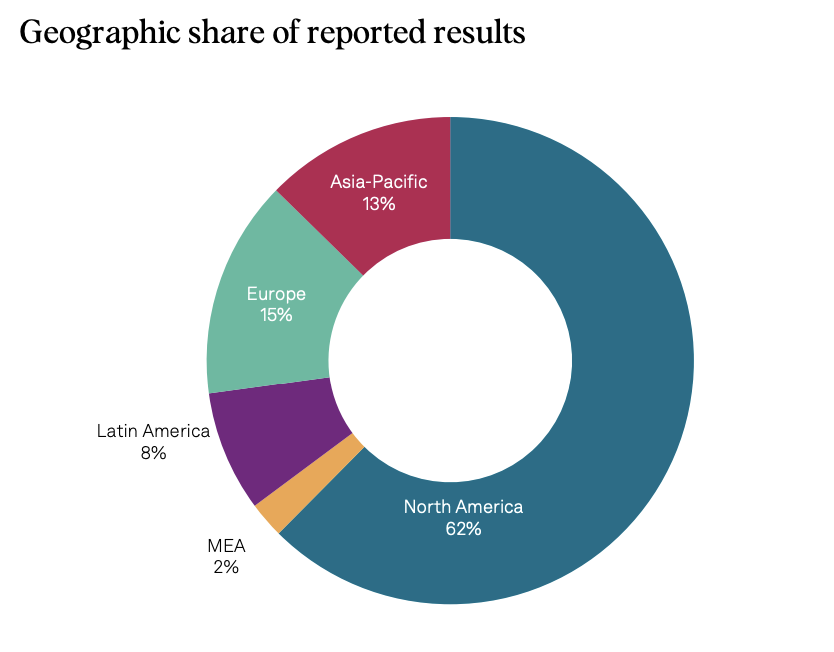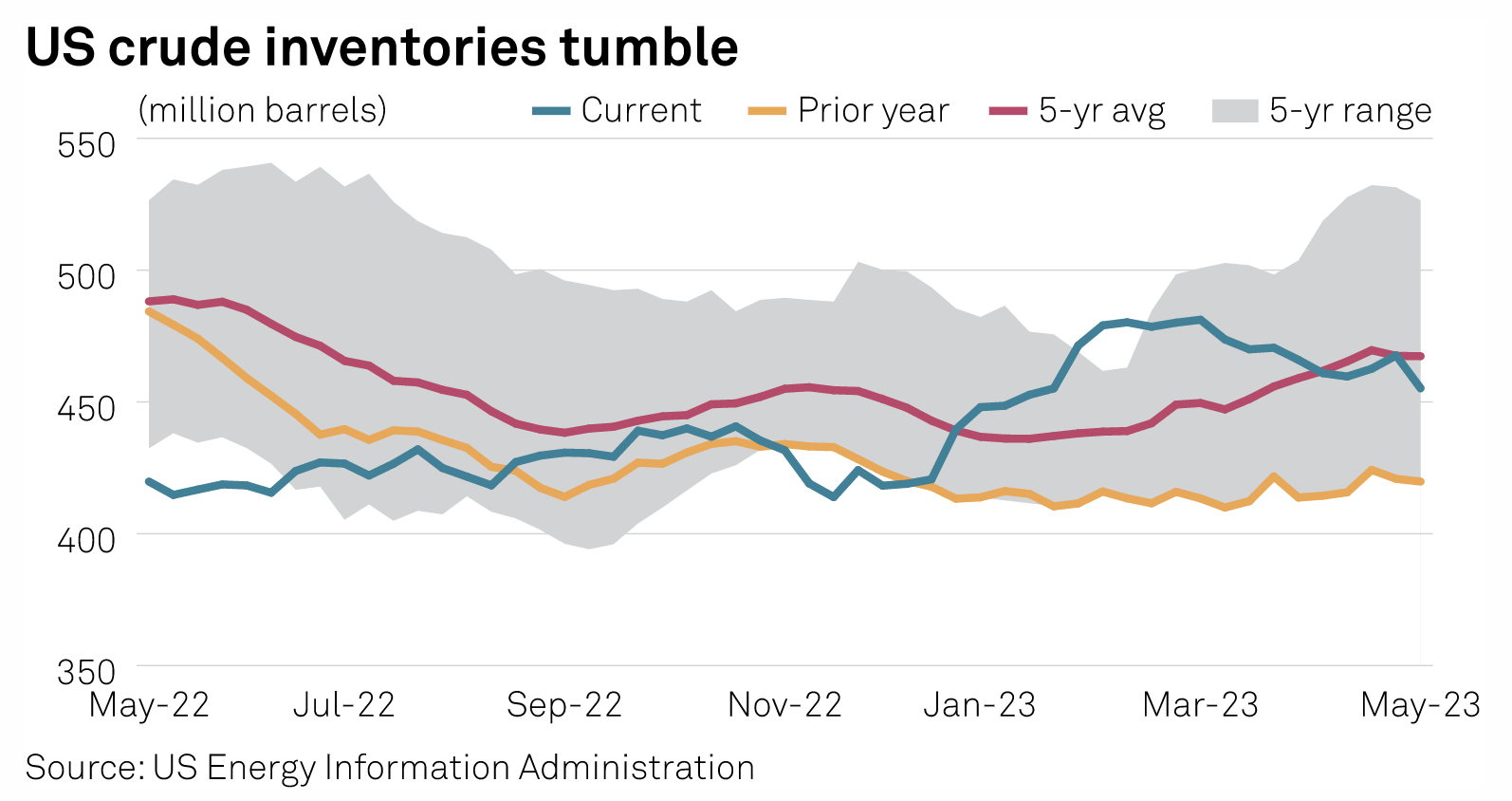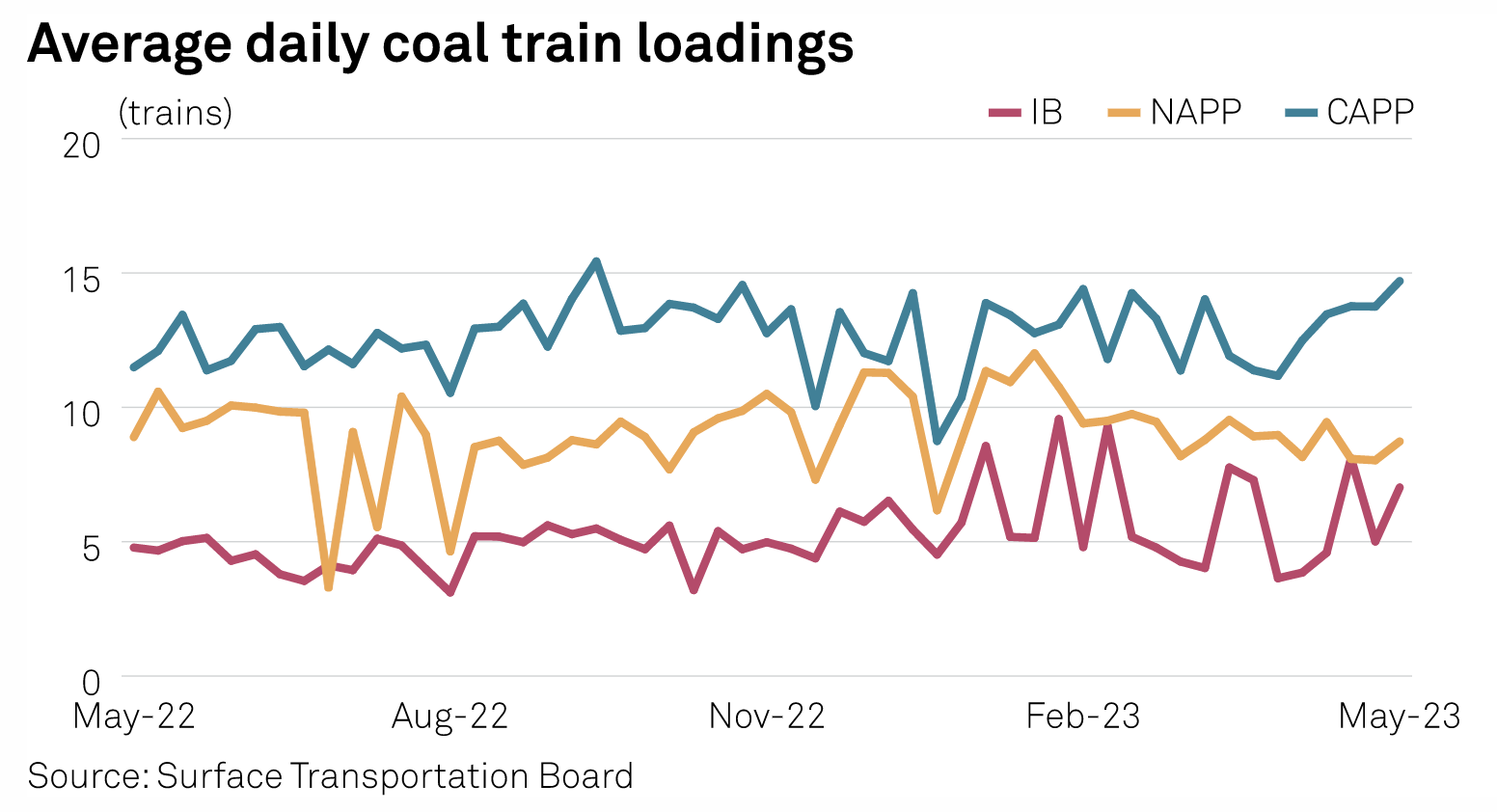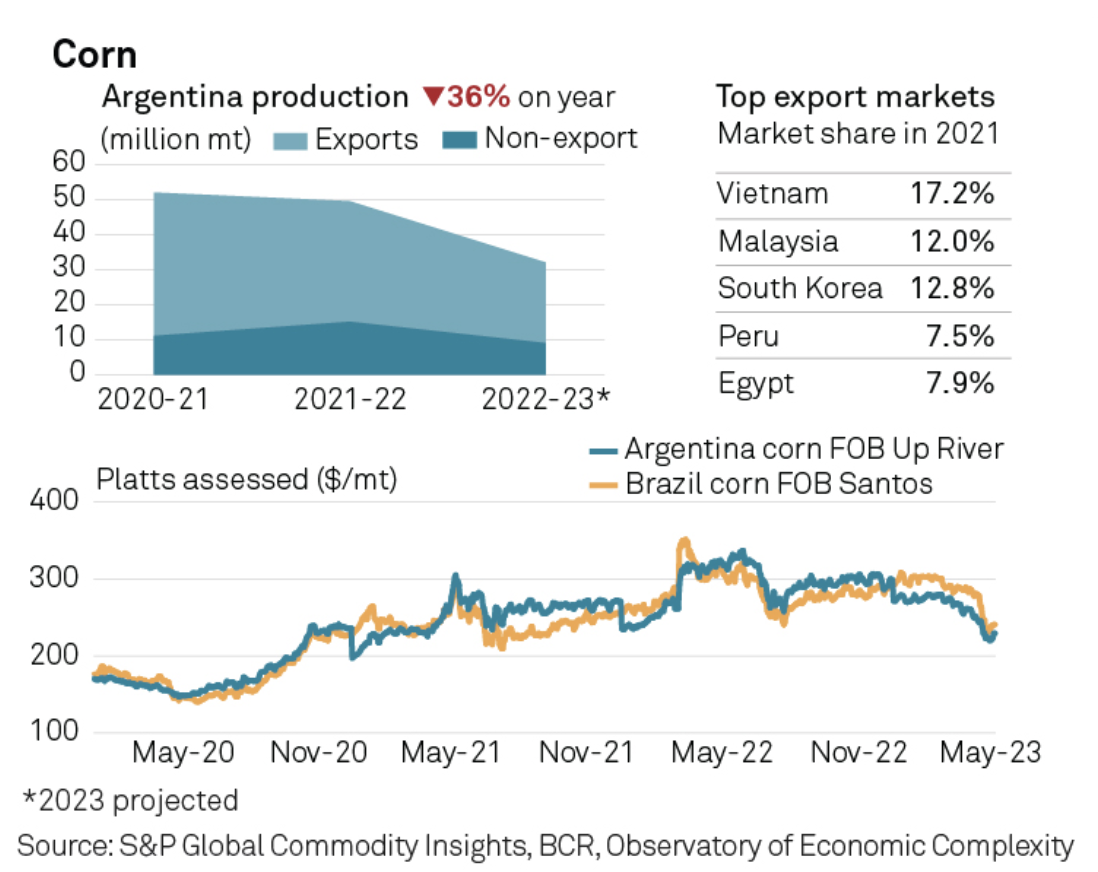Featured Topics
Featured Products
Events
S&P Global Offerings
Featured Topics
Featured Products
Events
S&P Global Offerings
Featured Topics
Featured Products
Events
S&P Global Offerings
Featured Topics
Featured Products
Events
Language
Featured Products
Ratings & Benchmarks
By Topic
Market Insights
About S&P Global
Corporate Responsibility
Culture & Engagement
Featured Products
Ratings & Benchmarks
By Topic
Market Insights
About S&P Global
Corporate Responsibility
Culture & Engagement
S&P Global — 25 May, 2023 — Global
By S&P Global
Start every business day with our analyses of the most pressing developments affecting markets today, alongside a curated selection of our latest and most important insights on the global economy.
EU Policies Lay Waste to Recycling Challenges
Recycling is a major focus of governments’ and businesses’ sustainability goals as they try to achieve a more circular economy. The next few years will be important for recycling development and legislation, particularly in the European plastic, metals and battery markets.
S&P Global Commodity Insights expects demand for recycled plastic to keep growing in the EU, but consumers’ commitment to sustainability is being tested by logistics issues and broader economic conditions. As inflation has risen and spending has fallen, demand for recycled plastic, as well as the amount of waste plastic available for recycling, has decreased.
Still, EU policy directives should continue to drive growth, with several recycling targets fast approaching. For example, the EU plans for 25% of plastic in polyethylene terephthalate (PET) bottles — the most common type of beverage bottle — to be made of recycled material by 2025. In an interview with S&P Global Commodity Insights, Antonello Ciotti, president of Petcore Europe, said that Europe should be able to meet the PET directive despite consumer attitudes, not because of them. “[The] final consumer cares about recycling content but does not want to pay more for it,” Ciotti said.
Another major piece of EU legislation is an upcoming ban on exporting waste to countries outside of the Organisation for Economic Co-operation and Development (OECD), a forum that includes most of the world’s highly developed economies. Some players believe that the ban will improve domestic supply in Europe, while others are concerned that it could affect the growth of some markets. For instance, it probably won’t have much impact on polystyrene, which is already widely used within Europe, but it may affect polyolefins markets, said Carsten Larsen, chief commercial officer of chemical recycler Agilyx.
This waste ban is also being closely watched by the scrap metal industry. Recycling scrap is “a key part of the energy transition,” according to S&P Global Commodity Insights, because production that reuses scrap metal emits much less carbon than production using virgin material.
Some industry participants fear the new rule “could play into the hands of EU steelmakers seeking greater scrap supplies for their decarbonization, while impeding decarbonization elsewhere and generally distorting markets,” wrote Viral Shah, a managing editor at S&P Global Commodity Insights. That said, scrap exports to non-OECD countries would still be allowed if the waste can be managed sustainably.
Meanwhile, black mass recycling is one of the fastest-growing recycling markets in the region. Made from old batteries, black mass is electronic waste that can provide lithium, nickel and other materials critical to producing new batteries.
“[B]attery recycling is still at the initial stage. It’s not a major business with high margin and standing supply chain,” said Joyce Wang, director of automotive research and analysis at S&P Global Mobility, on “Platts Future Energy,” an S&P Global Commodity Insights podcast. Wang noted that carbon neutrality targets, rising battery demand for electric vehicles and looming nickel and lithium shortages are the top drivers of this industry.
Battery recycling is set to grow in Europe as Li-Cycle plans to open lithium-ion battery recycling plants in France, Germany and Norway in the coming years. The facility in France should open in 2024, with Li-Cycle noting that “[t]he … lithium-ion battery ecosystem in France represents one of Europe's largest battery end-of-life and cell manufacturing markets.”
Overall, though recycling markets face various challenges, climate policies will continue to drive growth and development.
Today is Thursday, May 25, 2023, and here is today’s essential intelligence.
Written by Claire Delano.
Corporate Results Roundup Q1 2023: Beating Expectations, But EBITDA In Recession

The Q1 2023 results season for rated nonfinancial corporates is now 72% complete and S&P Global Ratings has updated its results roundup. Results have beaten market consensus expectations by a significantly greater degree than last quarter, with 38% of speculative-grade entities and 29% of investment grade exceeding consensus EBITDA by more than 7.5%. Even so, we are entering an EBITDA recession. Revenues have nudged lower and EBITDA is down 2.9% versus Q1 2022, the first decline for both since Q3 2020. Margins are falling but remain elevated. Leverage continues to decline but cash interest payments have started to surge. Cash balances continue to fall. Capex growth appears resilient.
—Read the report from S&P Global Ratings
Access more insights on the global economy >
A Quick Look At Key USD Indices And Fixed Income ETF Flows This Year

2022 marked a full year of rate hikes, unprecedented since the Global Financial Crisis, which propelled short-term yields upward and in turn ultimately caused the 10-2 spread to fall below zero in the second half of 2022, where it has since stayed. Recent market expectations suggest that the end of rate rises is perhaps in sight as we start to see its impact on a few U.S. regional banks as well as the forced takeover of one of Europe’s largest banks — Credit Suisse — earlier this year. While the latest U.S. inflation numbers have eased, employment data continues to suggest a strong labor market. It’s anyone’s guess whether the Fed will move rates in June.
—Read the article from S&P Dow Jones Indices
Access more insights on capital markets >
US Crude Inventories Tumble 12.5 Million Barrels As Refinery Inputs, Exports Remain Strong

US crude inventories fell 12.5 million barrels the week ended May 19 as refiners continued to boost runs while export demand remained strong, US Energy Information Administration data showed May 24. Analysts polled by S&P Global Commodity Insights had expected crude inventories to decline on average by 500,000 barrels, although the American Petroleum Institute late May 23 reported a 6.8 million barrel decline in inventories. US crude production was up 100,000 b/d at 12.3 million b/d, remaining within a well-established 12.2 million-12.3 million b/d range seen since the beginning of the year.
—Read the article from S&P Global Commodity Insights
Access more insights on global trade >
US Coal-Fired Power Plant Retirements, Hydropower Output Remain Important This Summer

US power prices have been lower in 2023 from 2022 due to lower natural gas prices along with modest power demand, and it will be important to watch coal-fired power plant retirements and hydropower capacity in the Western US going forward, S&P Global Commodity Insights power market analysts said May 24. "Gas prices have remained fairly low, with Henry Hub prices averaging about $2.20/MMBtu in April down about 60% from December of last year," Etienne Gabel, research and analysis director at S&P Global, said during a webinar discussing the team's most recent North American Electricity Short-Term Outlook.
—Read the article from S&P Global Commodity Insights
Access more insights on sustainability >
Historic Drought In Argentina Reduces Crops And Raises Food Security Risk

Argentina, one of the world's top agricultural suppliers, has endured a severe drought since 2022. The South American country exports corn, wheat, soybeans, soybean meal and oil to Africa and Asia. However, with a significant dip in Argentina's domestic production amid historic drought, a crucial supply line to global food security has been curtailed.
—View the full infographic from S&P Global Commodity Insights
Access more insights on energy and commodities >
RSA Conference 2023: AI Everywhere All At Once
Less than two weeks after the 2020 RSA Conference USA (RSAC) adjourned, a global pandemic was declared. This year, only days before the World Health Organization declared the COVID-19 emergency over, RSAC's 32nd annual edition reflected a return to pre-pandemic levels of participation — but with a stark difference in prevalent trends. S&P Global Market Intelligence may not be the only one invoking this year's Academy Award for Best Picture to characterize the impact of generative artificial intelligence, but it sums up how pervasive the technology was at RSA 2023. Even so, AI was far from the only trend in evidence.
—Read the article from S&P Global Market Intelligence
Content Type
Language
